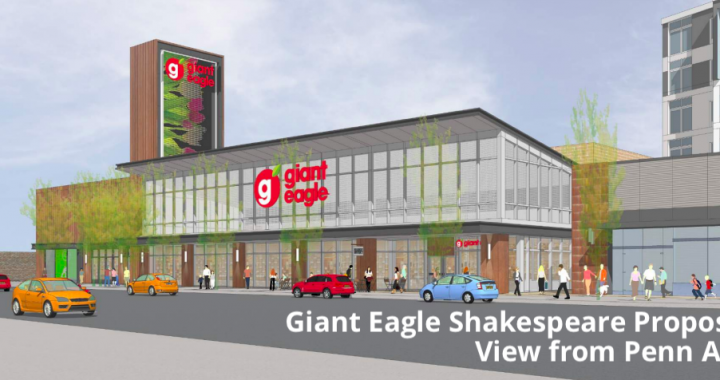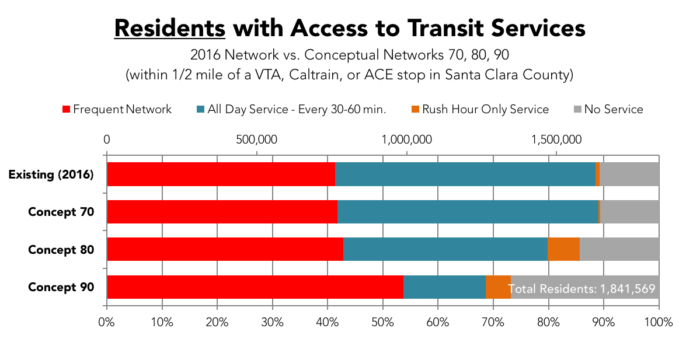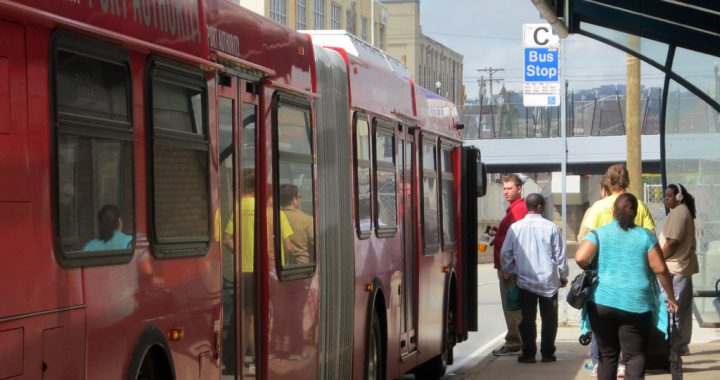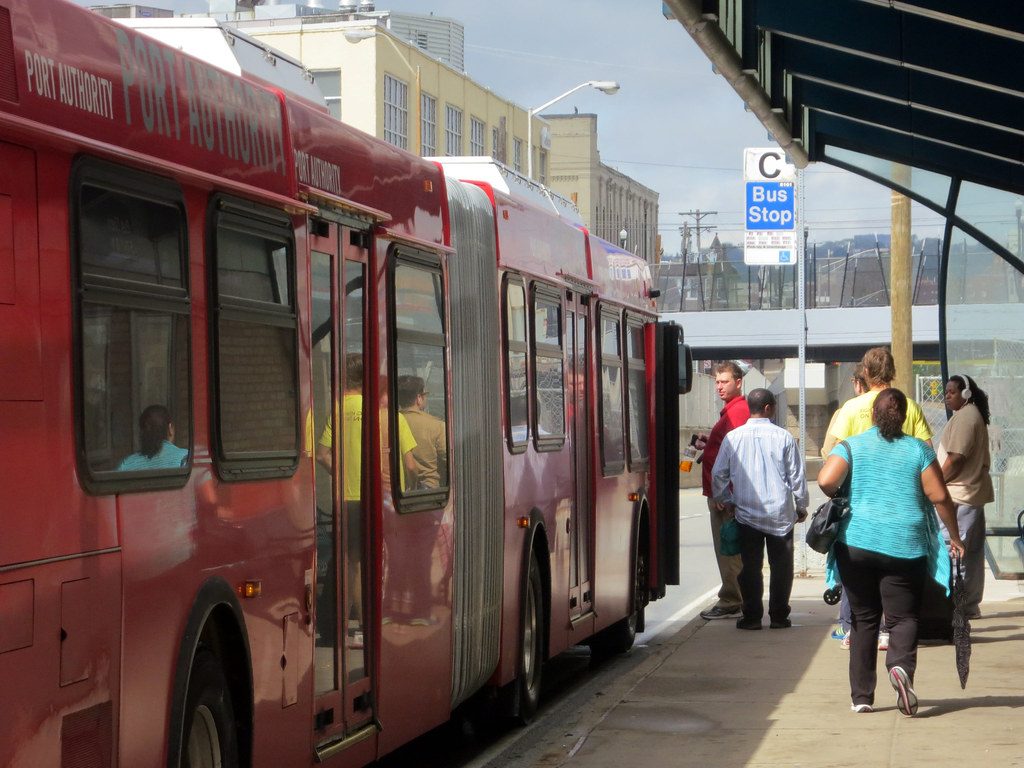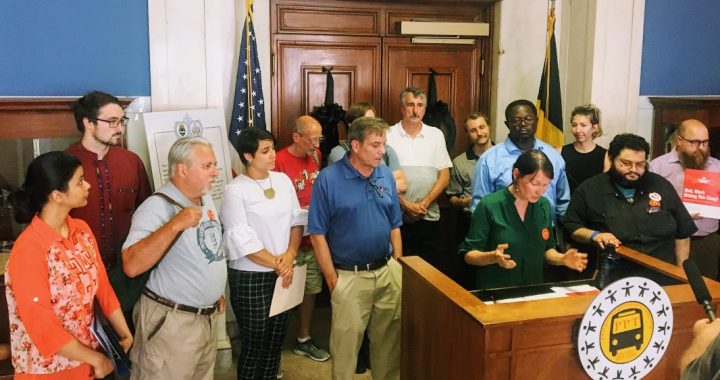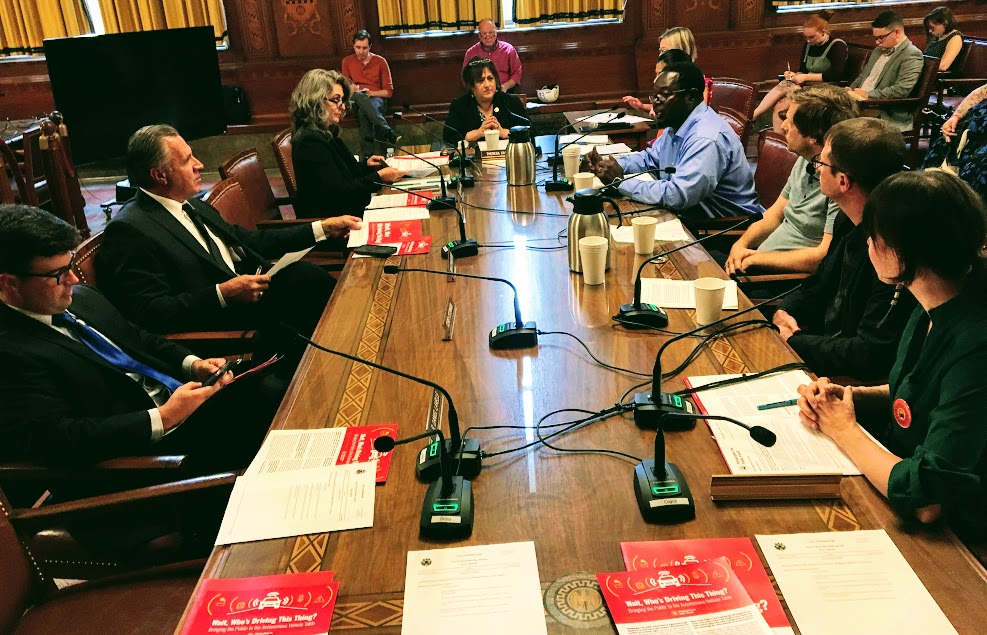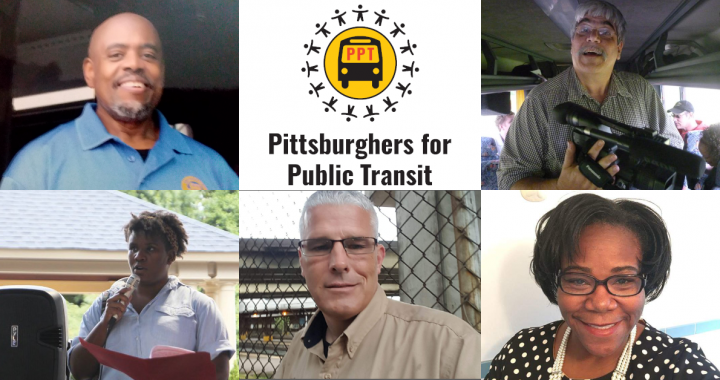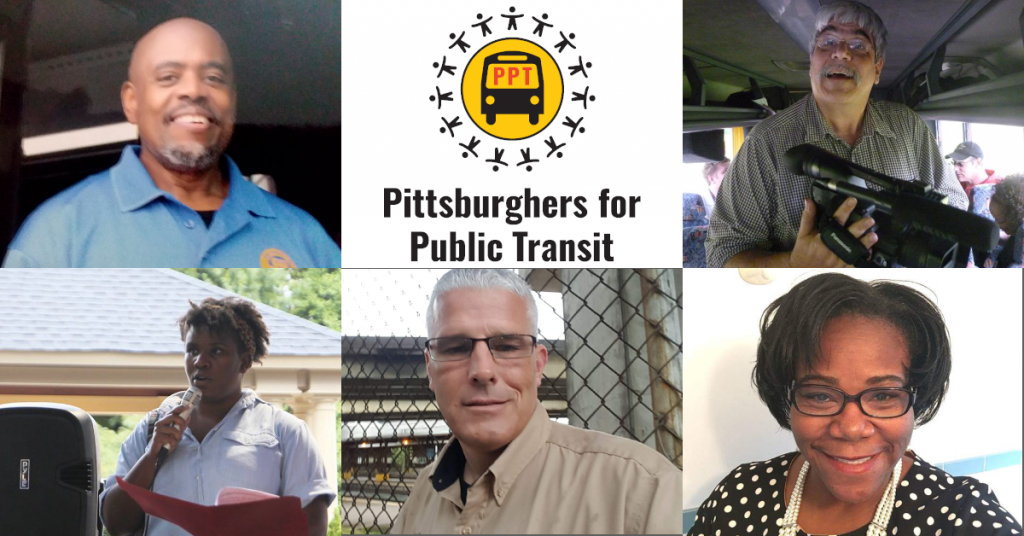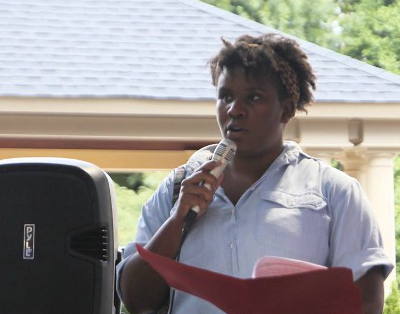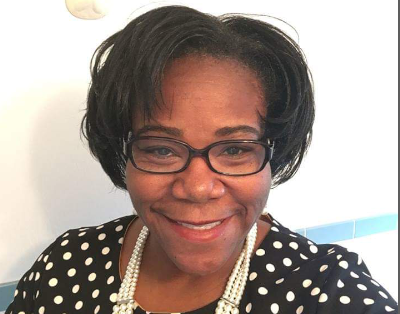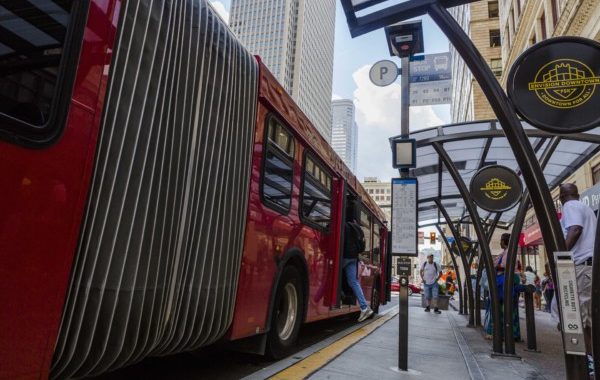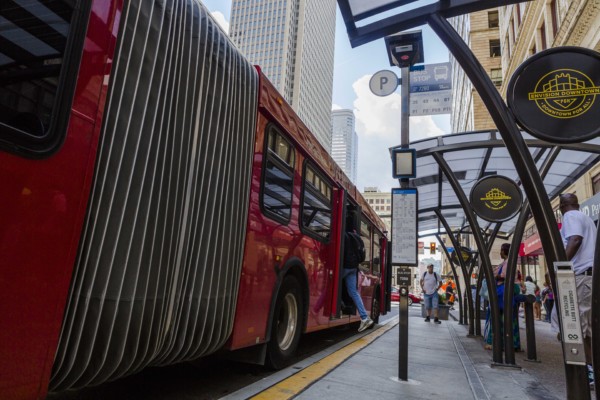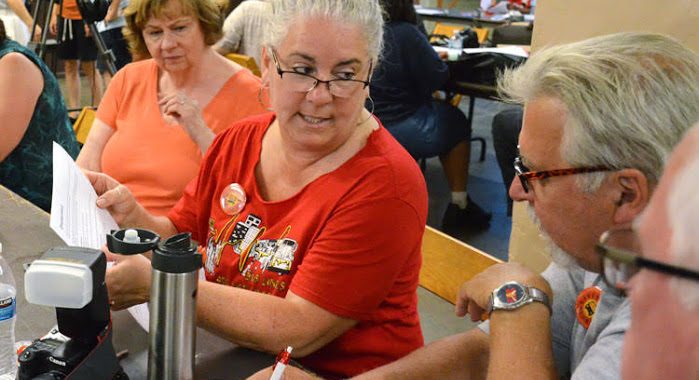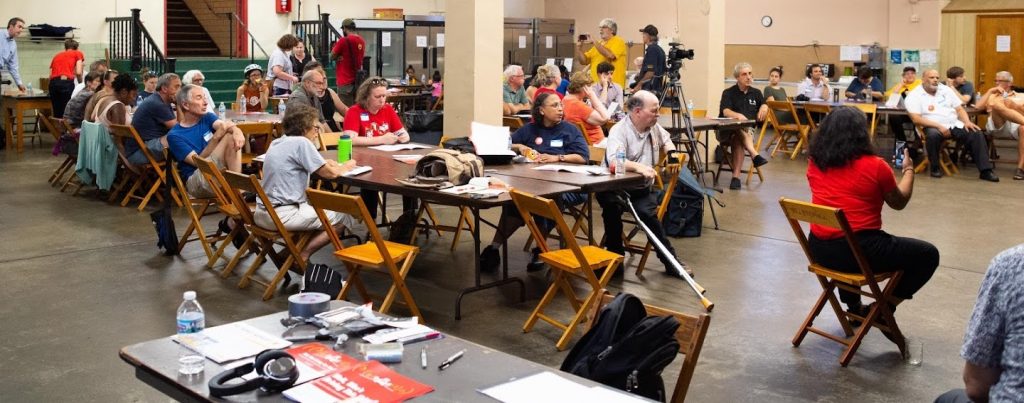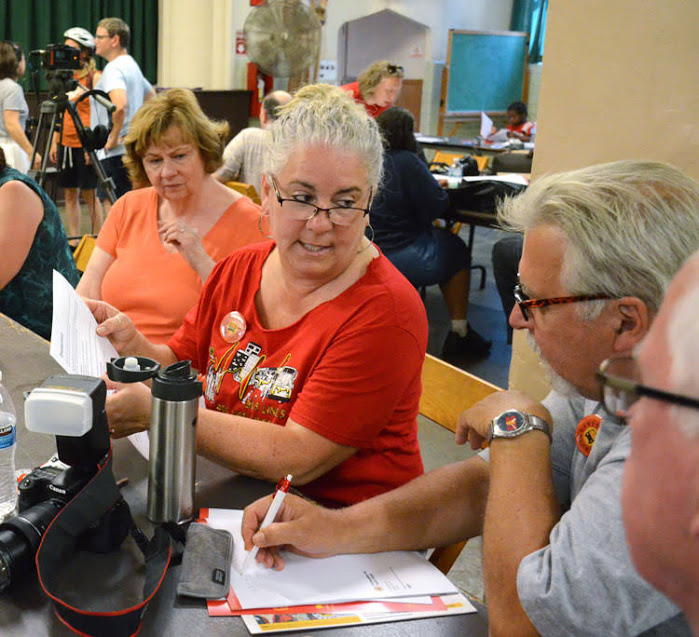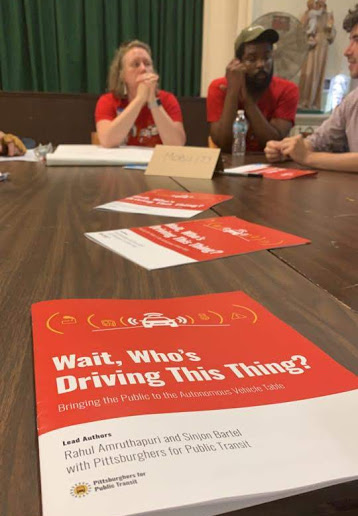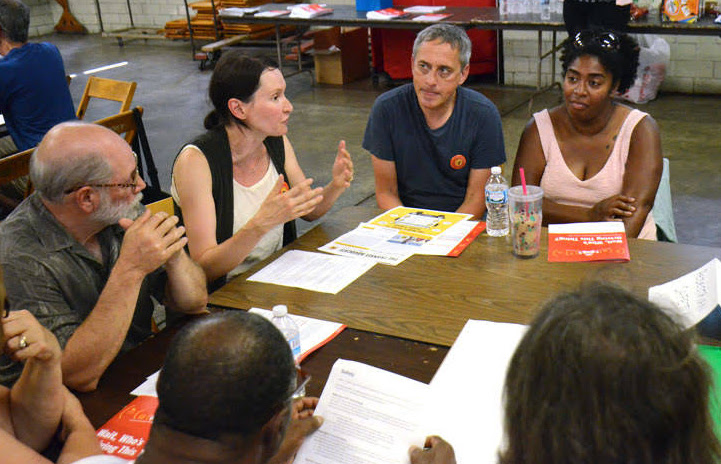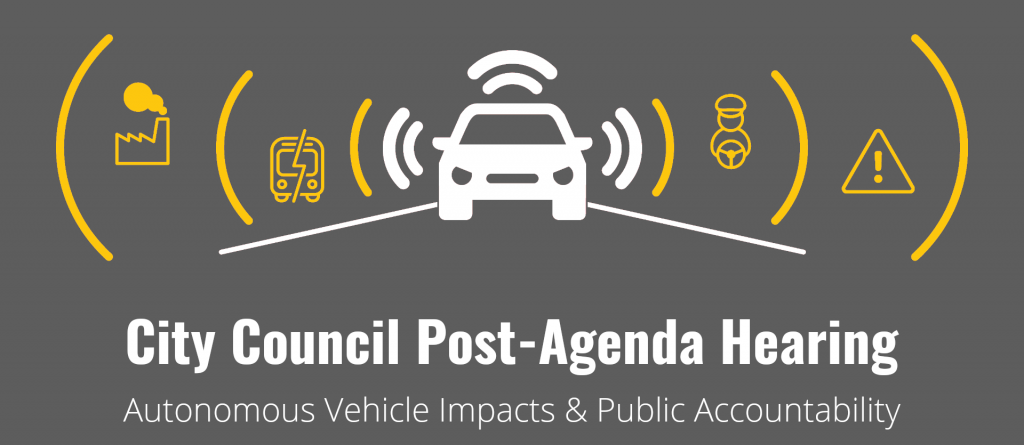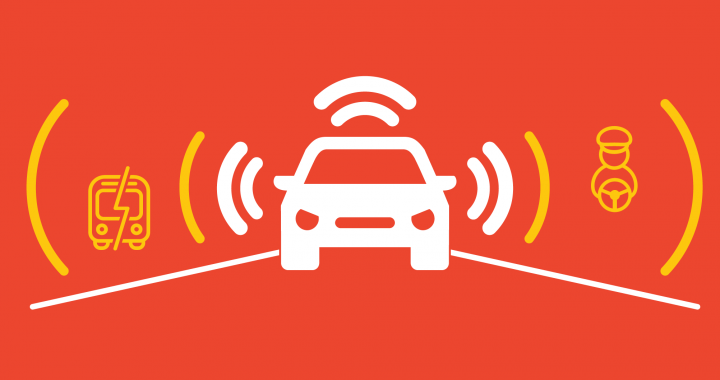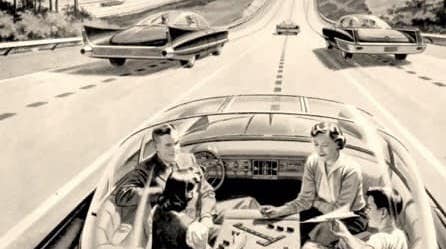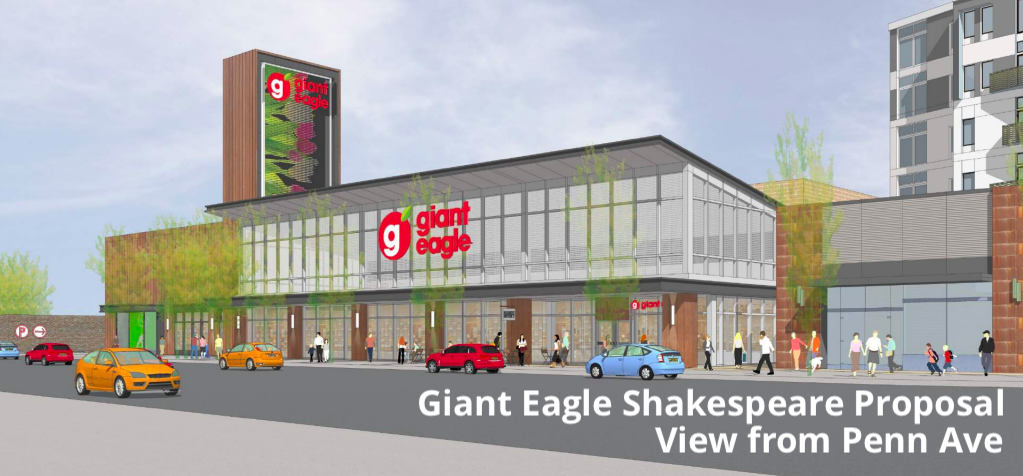
For those that may not have heard, the Shakespeare Giant Eagle is being redeveloped by Echo Realty, along with the entire strip mall and lot at the corner of Shady and Penn.
The Shakespeare site is directly adjacent to the East Busway, Port Authority’s highest performing asset carrying around 24,000 riders each day, and it is in the heart of Pennsylvania’s most walkable neighborhoods. Additionally, the pattern of gentrification and displacement in Pittsburgh’s East End continues to move our most vulnerable residents to far-flung areas of the county, leaving residents isolated without access to jobs or transportation and bleeding our city of its diversity.
This is a chance to show what equitable transit-oriented development can look like. If you care about transit, housing and environmental justice, then join the project’s second public meeting on September 9th, 6-8pm at Calvery Episcopal Church, 315 Shady Ave.
For a redevelopment that furthers housing-, mobility-, and environmental-justice goals, join PPT and call for free bus passes for all residents at the site and affordable housing available to renters at 50% AMI and below.
As a starting place, we believe that there is no reason that the developer should not be required to make 15% of all units available to renters earning 30-50% of the Area Median Income – which is in line with the report that Grounded Solutions compiled for the Mayor & Planning Department back in 2017.
And how do we pay for it? Well, an easy place to start is to build less parking. Studies have shown that parking in the new development surrounding the East Liberty Station has a 30% vacancy rate during peak usage. That’s a ton of very expensive, very empty space.
The latest plans for Shakespeare Giant Eagle propose a whopping 492 space parking garage on the site. It is well-documented that a SINGLE structured parking space costs $20,000-30,000. So at the low end, that’s a ~$10 Million parking garage. Here are some quick numbers to get the conversation started:
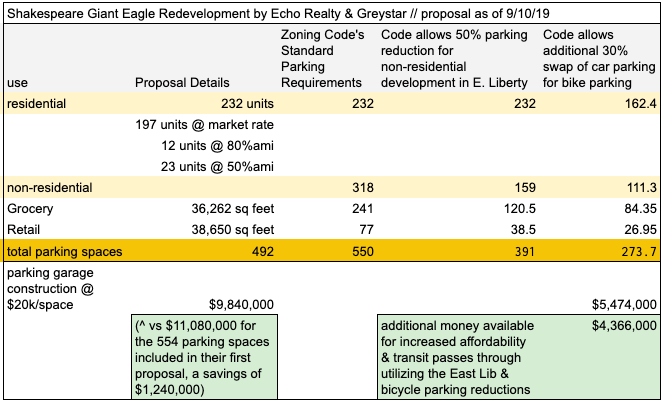
Pittsburgh’s Zoning Code allows development in East Liberty to reduce their non-residential parking requirements by 50%. We can’t find a map that details the exact boundaries that the code outlines to for this East Liberty reduction, but for almost all would agree that the Shakespeare site functions as a central part of East Liberty, and institutional decision-makers have long-included it in their redevelopment plans for the neighborhood. The PGH Zoning Code also allows developers to swap 30% of their required car parking spaces for bike parking. Although regardless of the requirements included in the code, the Planning Commission and Department have the power to waive parking requirements entirely, as they have done in the past. The intention of these reductions is to allow developers to shift away from building such car-centric developments and free up money to build more equitable, walkable communities. Its time we push our neighborhood developers to use them.
Cities like Cincinnati, Seattle, San Diego, and countless others have all moved to build equity and decrease car dependance through creative new parking policies, such as:
- Establishing “frequent transit zones” where developments within walking distance of great transit will have less car parking and more affordability
- Providing tenants free bus passes and/or bike-share memberships.
- “Unbundling” the cost of parking & housing – meaning the developer separates the cost of housing from the cost of their parking space and allows the tenant to decide whether to rent a parking space or not. If the tenant realizes that they’re paying an extra $200/mo for parking, they may be encouraged to use public transit more often.
- and lots more ideas. Here’s a paper full of them if you like reading.
Here in Pittsburgh at the Shakespeare Giant Eagle site, if Echo utilized both of the reductions that are available to them at no cost, they could open up around $5-6M in funding. Imagine what that could buy.
At full price, a yearly transit pass for every resident on-site? $248,000/yr.
Traffic headaches and pollution avoided from having 250+ new neighbors ride the bus? Priceless.
We aren’t developers. We aren’t planners. We aren’t bankers. We’re advocates and organizers. Our job is to get the conversation going. In this case, it doesn’t take much to look at the facts and the numbers and realize that things can be done differently at Shakespeare and other sites immediately adjacent to frequent transit lines to better support the neighborhood and its residents.
If you agree, come out to this September 9th Meeting, 6-8pm at the Calvery Episcopal Church and call for free bus passes & affordable housing. We know there’s plenty of $$$ to provide both.
